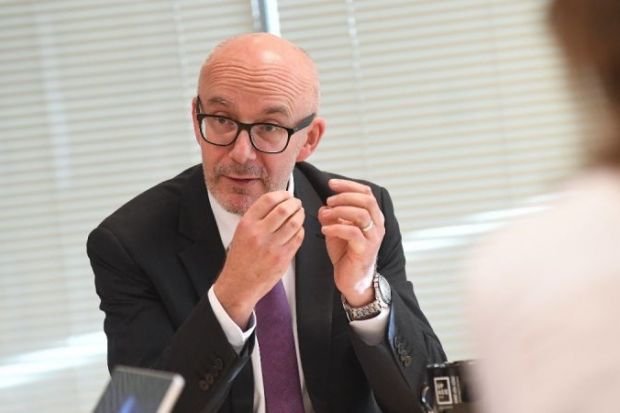Labour’s new shadow universities minister believes that higher education is a “collective benefit” and that the system should not “individualise the debt and the cost”, ahead of potential future battles over the party’s policy on English higher education funding.
Matt Western, MP for Warwick and Leamington since 2017, spoke to Times Higher Education after being appointed shadow higher education minister, replacing Emma Hardy, who stepped down saying she wanted to prioritise helping constituents in the pandemic.
Mr Western’s constituency is home to many University of Warwick staff – including his wife, Rebecca Earle, a historian of food and of the cultural history of Spanish America as a Warwick professor.
Manifesto commitments to abolish tuition fees and to fund universities through direct public funding were flagship Labour policies under former leader Jeremy Corbyn. But his successor, Sir Keir Starmer, is likely to come under particular pressure from the party’s right to change course.
Asked about the process through which Labour will shape its higher education policies, Mr Western said that after just a couple of weeks in post, “I can honestly say I do not yet know.”
Mr Western continued by noting that he has “long held that the provision of education is the most important gift one generation can give to another. But that education shouldn’t be simply for the benefit of that individual. That should be for the collective benefit. We are a society.”
He highlighted the contributions of academics such as University of Oxford vaccine researcher Sarah Gilbert and Imperial College London epidemiologist Neil Ferguson to the UK’s pandemic response.
“These are skills we are endowing the next generation with to help solve the problems that we mutually face,” Mr Western said. “Therefore, I don’t think that individual should be purely picking up the bill.
“If we individualise the debt and the cost of education, I see that as really detrimental and not to the benefit of society.”
He continued: “We [Labour] stood on the platform of, a manifesto of, abolishing fees [at the 2019 general election]. That is our position. I’m looking forward to contributing to the development of a higher education policy…to see what we want to do [in future].”
Mr Western called tuition fees of £9,250 a year an “extortionate amount of money when you add in maintenance loans”.
More widely, he said, he was “fearful the government may use this pandemic, the economic fallout of this pandemic [where] I think a lot of the damage is actually attributable to the government’s failings early on”, to introduce “major changes” in higher education.
Introducing a minimum entry requirement for student loans to study at university – an idea the government has said it will consider – would “make institutions more exclusive”, would be “regressive” and “would continue” longer term “as the government seeks to tighten it further in an attempt to cut the budgets of universities and reduce the sector”, he warned.
The contribution of research to the nation’s pandemic response shows that “our universities hold extraordinary power and capabilities”, said Mr Western, whose parents were a school administrator and a primary school headteacher, and who studied geography at the University of Bristol before a 24-year career with Peugeot in the UK and France working on finance, procurement and marketing.
“Right now, we should be celebrating our universities and acknowledging the extraordinary contribution they have made…rather than attacking universities, which is what I think is happening under this government”, he added.




